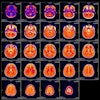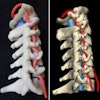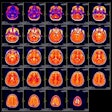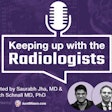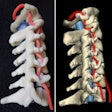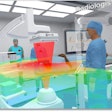Undergraduate medical students were eager to participate in an elective one-week radiology boot camp, with participants reporting the experience boosted their radiology knowledge but also their confidence in other specialties, according to a recent study.
Radiologists at McMaster University in Hamilton, Ontario, surveyed students before and after the course, with findings suggesting the format could help meet increasing demands for radiology content in undergraduate training, noted lead author and medical student Levi Burns, and colleagues.
“Focusing on radiology skills for nonradiology rotations was a successful strategy at this level to boost student confidence as they prepare to enter the clerkship phase of training,” the group wrote, in a study published January 17 in Current Problems in Diagnostic Radiology.
Although all undergraduate medical students undergo a core level of training in radiology, surveys of medical students, residents, and faculty consistently reveal a desire for increased undergraduate radiology training, the group wrote.
The researchers assessed the impact of a one-week comprehensive radiology boot camp, with measures including students’ radiology career interest, confidence in radiology-based skills, and the potential ability of radiology-based skills to increase their confidence in specialties other than radiology.
The course was offered for the first time in November 2022 to second-year preclerkship medical students four weeks before the beginning of their clerkship. Out of 167 students who were required to complete an elective during this period, 24 students ranked the radiology boot camp as their top choice, and 15 available positions in the boot camp were subsequently filled, the authors wrote.
Yet just five students listed interest in exploring radiology as a career choice as a reason for enrolling in the boot camp, with three of these students indicating it was their first choice.
According to the findings, career interest in radiology among the students was not changed by the event, with a neutral response on both pre- and post-boot camp surveys, the researchers wrote.
“There was strong agreement that improving radiology skills would increase confidence on non-radiology clerkship rotations,” the authors wrote.
Moreover, survey responses after the course indicated average student confidence increased by more than one point on a six-point Likert scale in radiographic interpretation (p = 0.004), ultrasound interpretation (p = 0.0002), CT/MRI interpretation (p = 0.02), general radiology knowledge including procedural skills (p = 0.0001), and appropriate image ordering (p = 0.004). The average student satisfaction with the elective was 8.1 out of 10.
Ultimately, the course was branded as an opportunity to prepare for non-radiology clerkship rotations and was not developed with the explicit goal of improving radiology career interest or targeting students with preexisting interest in the field, the authors noted. They also noted that student enthusiasm to enroll in the course exceeded their expectations.
The study highlights “the importance of how a one-week radiology boot camp can impact both future radiology and non-radiology clerkship experiences,” the group concluded.
The full article is available here.
